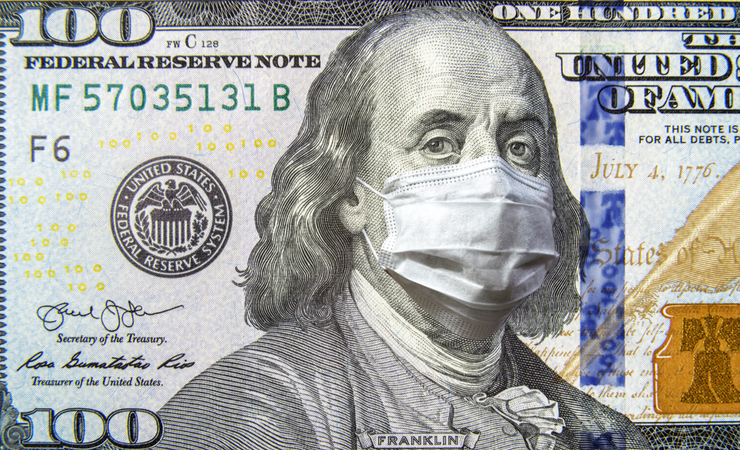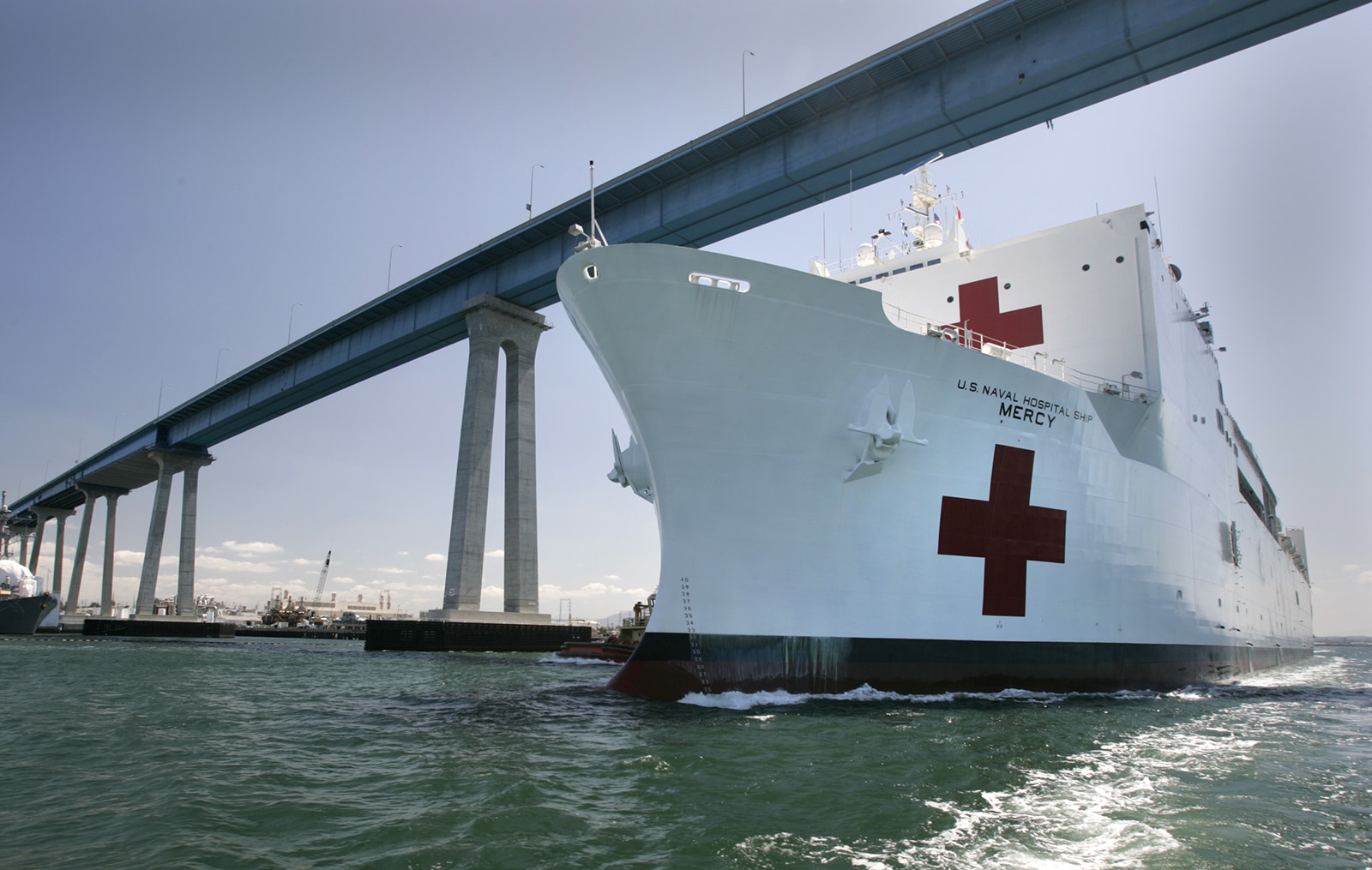
To Fight This Pandemic, We Need to Take Over the Military’s Resources — Not the Other Way Around
Rev. William Barber and Phyllis Bennis / Opinion: Newsweek
(March 23, 2020) — We have been critics of the military for a long time. We’ve been critical of the endless wars the military is sent to fight, and of the inhumane weapons and methods the military uses against people around the world.
Perhaps most of all, we’ve been critical of the bloated military spending — $738 billion this year — that distorts our nation’s priorities. While 53 cents of every discretionary tax dollar goes to the Pentagon, we’re told there’s just no money to pay for Medicare for All, a Green New Deal, ending college debt, or a new jobs program.
The military has long been the biggest, best-funded institution of our entire government. And right now, while we’re struggling against a deadly pandemic, we’re not using it for anything close to the right reasons.
So maybe it’s time for a counter-intuitive idea: We need to repurpose the military.
To be clear: This isn’t about asking the military to solve the corona crisis. That would be disastrous. The Pentagon must not be in charge of this crisis, but it can still provide critical resources.
We’re old enough to remember when Ronald Reagan broke the Patco strike, fired all the air controllers, and sent in the military to take over and run civilian airport control towers. What if we did the opposite?
What if we sent civilians to take over the military’s vast medical apparatus — taking charge of the rich largesse of medical equipment, medicine, doctors, orderlies, and more — now sitting, often unused, in the 50 or so military hospitals across the country?
Many of the big military hospitals have the most modern equipment and capacity. Even smaller bases have clinics, emergency rooms, and medical staff. And the Pentagon has its own stockpiles — separate from the official “national” stockpiles — of masks, ventilators, and other medical gear so desperately needed right now.
What if civilians — perhaps the non-military U.S. Public Health Service, which boasts of its “6,500 highly qualified public health professionals” available to be deployed anywhere, or maybe the Centers for Disease Control & Prevention — were to commandeer those resources now available only for military use?
There is a lot of talk out there already about “mobilizing the military” to respond to the coronavirus crisis. But much of that talk is actually dangerous.
Retired Lt. General Mark Hertling wrote for CNN that it would be impractical to divert US military medical resources to care for civilian victims of the pandemic. Instead, he proposed that the military should primarily “assist with command and control of operations and functions, given that commanders and their staffs continuously practice managing information and deliberations regarding crisis decision-making.”
That is exactly the opposite of what we need. Our response to this crisis must not be led by military commanders, but by doctors and public health experts empowered, among other things, to redirect military property. They should be the ones deciding what’s needed and able to requisition it. Instead, so far it’s been left to the Pentagon to decide how limited their gift to the people — the US taxpayers who pay their salaries and buy their masks, ventilators, and hospitals — will be.
After signing off on an initial transfer of masks and ventilators to the Department of Health and Human Services, the AP reported, Secretary of Defense Mark Esper warned that “there are limitations to the assistance and trade-offs that must be considered. “We want to be the last resort,” he said, adding that the first line of defense in fighting the virus should be state and local authorities.
But that’s not his call to make. This is a war against a lethal disease threatening the lives of potentially millions of people — and the top decision-makers must be civilians, not military, and preferably medical or public health professionals.
This is a battle in our country’s longest war: poverty’s war against our people. Even before this crisis, some 140 million Americans were poor or low-wealth.

A US hospital ship arrives in San Diego to help care for coronavirus victims (Photo: American Miltary News)
So far, this crisis is showing us in devastating clarity that poverty is still winning that war. Why was the government’s first move to offer stimulus funds to fossil fuel companies and cruise lines? Why can’t low wage workers, whose taxes have already paid for the military, recoup some of that by having military workers build new hospitals and bolster the public health system?
Right now, if we canceled just one multi-billion military contract with private corporations — like the $29 billion contract with Lockheed-Martin to build new warplanes to carry out more airstrikes—we could immediately and dramatically expand health care to millions living in coronavirus hot spots.
Maybe, just maybe, this moment of existential crisis provides us an opportunity to try something like that. We refuse to accept a military take-over of coronavirus response. But we demand that military resources be brought under civilian medical and public health control to give us a fighting chance to win this battle.
Rev. Dr. William Barber II is the president of Repairers of the Breach and co-chair of the Poor People’s Campaign: A Call for Moral Revival. Phyllis Bennis directs the New Internationalism Project at the Institute for Policy Studies.The views expressed in this article are the author’s own.
Posted in accordance with Title 17, Section 107, US Code, for noncommercial, educational purposes.